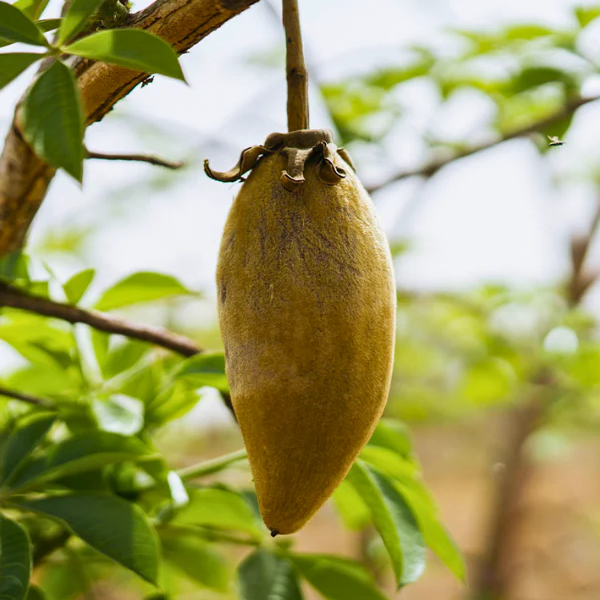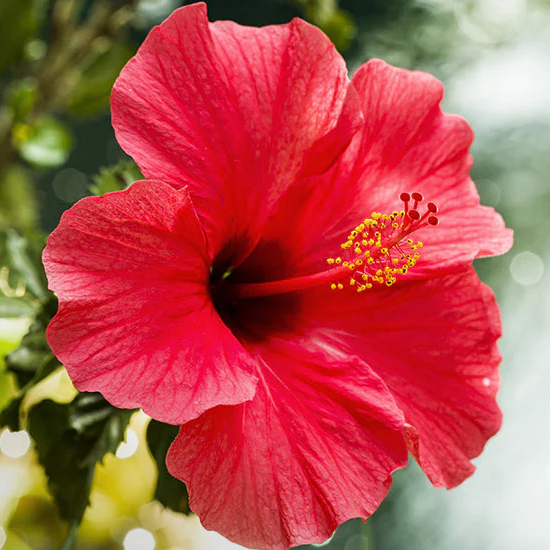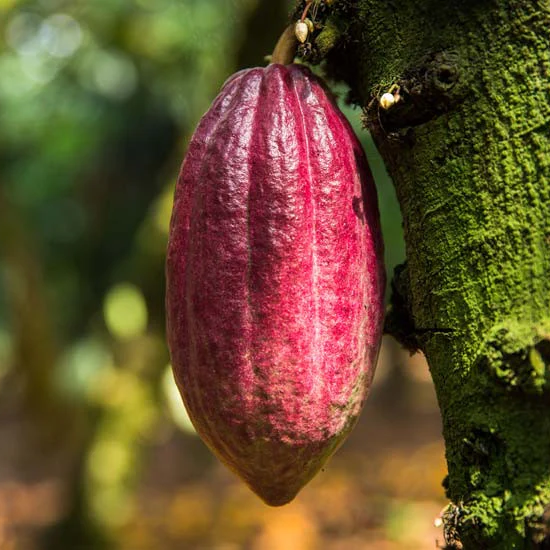Moringa Frequently Asked Questions
What is Moringa?
The Moringa Tree or Moringa Oleifera to use its scientific name, is a medium-sized tree that is native to Africa and Asia. It is also known as the ‘drumstick tree’ or the ‘miracle tree.’ Every part of the moringa tree is valuable: its seeds can be used to purify water; its bark, roots and flowers all have incredible medicinal properties and its leaves are one of the most nutrient-dense foods on the planet.
Aduna Moringa is made from the finest quality young moringa leaves which are harvested, naturally dried and ground into a powder. Aduna Moringa contains 5 essential vitamins at source or rich source levels and is also high in fibre, protein and antioxidants - it really is one of nature’s most prized creations. Learn more about the benefits of moringa here.
How is Aduna Moringa Powder made?
Aduna Moringa is a natural powder made from dried moringa leaves. Although the processing of moringa leaves is simple, the quality is dependent on the delicate conditions needed for harvesting and drying - therefore, not all moringa is made equal.
To ensure nutrients are not damaged by the sunlight, Aduna Moringa is harvested before dawn. The leaves are washed in purified water before drying. At this stage, the nutritional values of the leaf increases greatly - up to 10 times more than the fresh leaves! The dried leaves are then ground into a ready-to-use green powder, perfect for giving your food and drinks a nutritional boost. Learn more about the benefits of moringa here.
What does Aduna Moringa Powder taste like?
Aduna Moringa Powder has a green, spinachy flavour which is often compared to the taste of matcha. Unlike other green superfoods like spirulina and chlorella, moringa isn’t an algae so it doesn’t have a strong, overpowering flavour and is easy to incorporate into your daily diet.
Check out our article on 5 easy ways to use moringa for some of our favourite ways to #dothemoringa!
How do I use moringa powder?
Aduna Moringa has a green spinach-like taste and is easy to incorporate into your daily diet. Try blending it into smoothies (along with other superfoods if you like), mixing it with apple juice or using it as a ‘superfood seasoning’ on your lunch or dinner. You can use it the same way as you would any veg, herb or seasoning. As Aduna Moringa Powder is 100% pure leaf powder, there’s nothing you can’t mix it with - just let your imagination run free or check out our moringa recipe page for more inspiration.
What are the health benefits of consuming moringa?
A single serving (10g) of Aduna Moringa Powder is packed with a variety of vitamins and minerals. It is a rich source of complete protein with all 9 essential amino acids (incredibly rare for a plant) iron, vitamin E and K and a source and vitamin A and calcium. Moringa is also 24% fibre. It has one of the highest antioxidant contents of any food. We like to think of it as nature’s multivitamin! Learn more about the full benefits of Aduna Moringa Powder here.
How much moringa powder should I take each day?
Moringa is one of the most nutrient dense superfoods on the planet, containing 5 vitamins & minerals at source or rich source level per 10g serving as well as protein, fibre and antioxidants. As it is so nutritious, we recommend beginning with ¼ or ½ a teaspoon a day and gradually building up to a full serving to give your body time to adjust. Check out our moringa recipe page for some inspiration on how to use Aduna Moringa Powder.
Where do you source your moringa from?
As with all of our ingredients our priority is to source moringa directly from small-scale producers, creating sustainable income flows for rural households. We are currently sourcing our moringa primarily from small-scale producers in Southern India while we work to build the capacity of our partners in Africa to enable them to meet our stringent quality standards.
If I heat moringa powder, will it lose its nutrients?
As with most foods, heating moringa powder can lead to a reduction of nutrients, particularly the vitamins, however, as moringa is so nutrient-rich, heating it will still provide you with nutritional benefits. For optimum results, we recommend stirring or sprinkling moringa into your foods after they have been cooked to ensure the nutrients aren’t lost.
What are the nutritional differences between moringa powder and fresh moringa leaves?
When moringa leaves are shade-dried like Aduna Moringa, the nutritional content increases by over 10 times so generally speaking dried moringa leaf powder has far superior nutritional value than fresh leaves. The only nutrient that is reduced by the drying process is the vitamin C content which is higher in fresh leaves. Additionally, moringa in its powdered form is much easier to incorporate into your diet (check out our easy ways to use moringa) especially if you are living in a climate where it doesn’t grow and has a much longer shelf life.
Can I take moringa instead of vitamins/supplements?
It is widely considered that nutrients from food-based sources are more bioavailable to the body and are generally better absorbed than artificially formulated supplements which need breaking down before the nutrients can be utilised.
Aduna Moringa is a pure leaf powder which means it is easily recognised by the body and in turn, readily absorbed. Thanks to its impressive nutritional profile – a rich source of protein (unusual for a plant) iron, vitamin E and vitamin K, 24% fibre and a source of vitamin A and calcium – it can be seen as a natural multi-vitamin.
However, it is important to remember that a 10g serving of moringa powder doesn’t contain all of the nutrients our bodies need such as vitamin B12 or vitamin C at source level. To be a source of a vitamin or mineral, it needs to contain over 15% of your daily requirement (NRV per serving). Therefore, it’s best to seek other natural sources for any additional vitamins or minerals your body lacks. Most people use moringa in combination with baobab powder which is rich in vitamin C. Vitamin C helps the body to absorb other essential nutrients in moringa, such as iron.
Why have I read conflicting information about the amount of vitamin C in moringa?
It is often reported that moringa powder is rich in vitamin C however, this is inaccurate. While it is true that fresh moringa leaves are high in vitamin C (containing 200mg per 100g), when moringa leaves are dried to form a powder, the vitamin C levels diminish considerably. Dried moringa powder has on average around 2mg of vitamin C per 100g, which is not enough to be classified as a source (it would need 12mg per 100g). We carry out extensive nutritional analysis on all our products and aim to be fully transparent about the nutritional content of our range. If you are looking to up your vitamin C levels naturally, Aduna baobab powder contains 225mg vitamin C per 100g - learn about the full benefits of baobab here.
Is your moringa high quality?
Moringa powder is available to buy all over the world, however, not all moringa powder is made equal and the quality and nutritional content can vary widely. As moringa is mostly grown in developing countries where infrastructure can be poor and resources limited, harvested leaves are often washed with unpure water which can contain bacteria and other microbes. We have tested moringa from a huge number of suppliers all around the world and very few have passed our rigorous quality controls. When buying moringa, it is important to use an organic certified moringa brand to ensure the powder is free from any harmful substances.
Aduna is certified by the UK's leading organic certification body, Soil Association. All our moringa products are made from 100% organic, pure moringa leaves and every batch undergoes in-depth microbial analysis to guarantee the highest possible quality.
Aduna Moringa is produced using a method known as shadow drying which provides the highest nutritional values compared to other methods such as oven and sun drying. We do not use any harmful pesticides and our products have no additives or preservatives. Learn more about how Aduna Moringa is made here.
Are there any side effects I may experience from consuming Aduna Moringa powder?
There are no known side effects to consuming moringa - however, as with all foods, everyone’s body responds differently. It is important to remember that moringa is simply a vegetable so in the same way people can feel bloated after eating brussel sprouts or might be allergic to carrots, you could experience symptoms (such as stomach upset or dizziness) after eating moringa especially when just starting out which can be a side effect of your body getting used to the nutrients and eliminating any toxins. Over time, these side effects should gradually disappear. We recommend starting with ¼ or ½ a teaspoon a day to see how your body reacts and increase your intake from there.
If you are worried about adding moringa powder to your diet, ask your doctor or medical practitioner for advice. If you are pregnant, trying to conceive or on medication, consult a doctor before use. Enjoy as part of a healthy, balanced diet and active lifestyle.
I take other green superfoods. How does Aduna Moringa compare?
Unlike most other superfoods, Aduna Moringa has not been spray-dried, freeze-dried or processed in any way. It is a 100% natural and organic nutrient-dense leaf that is a rich source of protein, (including all 9 essential amino acids - unusual for a plant), iron, vitamin E and vitamin K. It is also 31% fibre and a source of vitamin A and calcium.
Popular green superfood powders such as chlorella and spirulina, contain on average 3-4 vitamins or minerals at source or rich source levels per serving (based on their NRVs or Nutrient Reference Value) whereas Aduna Moringa contains 6. Learn more about how NRVs are calculated and the nutritional profile of Aduna Moringa here.
Additionally, moringa has a spinachy earthy flavour that is easy to incorporate into your meals - think of it as a vegetable powder that can be added to pretty much anything!
Can I take moringa while pregnant or breastfeeding?
If you are pregnant or trying to conceive, we recommend seeking medical advice before taking moringa.
If you are breastfeeding, moringa is perfectly safe to take and in fact has been scientifically proven to increase breast milk! This is because the leaves are a natural galactagogue, a substance that promotes or increases the flow of a mother’s milk. Learn more about the benefits of moringa when breastfeeding here.
Discounts, Rewards & Affiliates
My discount code is not working?
To apply your discount code, enter it in the designated field at checkout before completing your purchase. If you encounter any issues, please double-check the code and its terms and conditions. Please note that all codes cannot be used in conjunction with other offers and discounts, including bundles. For further assistance, feel free to contact our customer support team by e-mailing info@aduna.com or calling us on +44 (0)207 100 4329.
Where do I enter my discount code?
Once you have added products to your basket and entered the checkout process enter your code into the 'discount code' field and click apply.
How can I become an affiliate?
If you're interested in joining our affiliate program please e-mail affiliates@aduna.com introducing yourself.
Orders, Shipping & Returns
Can I amend or cancel my order once it has been placed?
Once an order has been placed we are sadly unable to make any changes.
What shipping options do you offer?
We offer Free Standard shipping on all UK orders over currently offer £35. For all other orders we offer Standard, First Class and Tracked option starting at £2.50. Rates vary based on the total spend.
For International orders the cost will be calculated at the checkout and delivery is within 14 working days. Please note that custom and duty fees may apply upon delivery.
Can I return my order?
Yes, we accept unopened goods within 14 days of receiving your order. Please email info@aduna.com with your reason for return that we can provide you with a returns code and instructions.
Can I track my order?
If you have selected the tracked shipping option you will receive a tracking number via email once your order has been shipped. You can use this number to track your order on the carrier's website.
My order hasn’t arrived. What should I do?
If your order has not arrived within the estimated delivery time, please email info@aduna.com for assistance.
I have received a damaged or incorrect order, what can I do?
If you receive a damaged or incorrect order please email info@aduna.com so we can resolve this for you.
What payment methods do you accept?
We accept most major credit and debit cards, PayPal, and other online payment options.
What’s the difference between a subscription and one-time purchase?
A subscription offers the convenience of regular deliveries at a slightly discounted rate, while a one-time purchase is a single order without recurring deliveries.
Do you offer wholesale pricing?
Yes, we offer wholesale pricing for bulk orders. Please contact our sales team on sales@aduna.com for more information on our wholesale program.
Our Products
Are superfoods for me?
Superfoods are suitable for most people and are a great way to boost your daily nutrition. If you have specific dietary concerns we recommend consulting with a doctor.
Are your products vegan?
Yes, all of Aduna's products are vegan
Can I take superfoods if I have allergies?
Our superfoods are free from common allergens such as gluten, dairy and nuts. If you have specific dietary concerns we recommend reviewing the full list of ingredients.
Are superfoods safe to use while pregnant or breastfeeding?
If you are trying to conceive, pregnant or breastfeeding we recommend consulting a healthcare practitioner before incorporating superfoods into your diet.
Is it safe to give superfoods to my children?
Our superfoods are 100% natural and rich in essential nutrients, making some of them an excellent addition to a balanced diet when used appropriately. We recommend avoiding products containing caffeine or functional mushrooms for younger children, as there is currently insufficient research on their effects in this age group.
For children, we recommend baobab, and fonio as safe and nutritious options. Always begin with small amounts, watch for any sensitivities, and consult a healthcare professional if you have any questions or concerns.
Can superfoods be used as meal replacements?
Superfoods are not intended to replace meals, but can be incorporated into a balanced diet as part of a healthy lifestyle.
How should I use superfoods?
Superfoods can be easily incorporated into your daily routine in many ways. Check out our product pages for suggestions on each product.
You can add our superfood powders and blends to shakes, smoothies, juice, milk and healthy recipes - as well as plain water. If you're not keen on the taste, you can mix with a small amount of liquid to create your own health shot. For inspo, you can browse our recipes here.
Can I take more than one superfood product a day?
Yes, you can incorporate multiple Aduna superfood products into your daily routine. However, we recommend moderation and consulting with a health professional for personalised guidance. We suggest following the recommended dosage instructions provided on the packaging unless advised otherwise.
Do I need to continue taking supplements and vitamins?
Superfoods can compliment a balanced diet but may not replace the need for other supplements or vitamins. Consult with a health professional to determine your specific nutritional needs.
Are your products organic?
The majority of our products are 100% organic. Please refer to our individual product pages for specific certifications.
Does heating superfoods damage the nutritional content?
Some nutrients may be sensitive to heat. To preserve their nutritional content, we recommend adding superfoods to cold or room temperature foods and beverages.
How should I store my superfoods?
Store superfoods in a cool, dry place, away from direct sunlight. Reseal the packaging tightly after each use to maintain freshness and use by the best before date specified on pack.
Do your products contain anything artificial?
Our products are 100% natural and don't contain any artificial additives or preservatives.
Subscriptions & Account
Can I add additional discounts to my subscription?
Subscription orders already include a discount, and additional discounts are not applicable. The discount offered on subscriptions is generally our best offer. Contact us on info@aduna.com if you have any further questions.
Can I make changes to my subscription?
Yes, you can manage your subscription by logging into your account on our website. You can adjust the frequency, products, and shipping details as needed. If you need assistance, please e-mail us on info@aduna.com.
How do I cancel my subscription?
You can cancel your subscription by logging into your account on our website and following the cancellation instructions.
How do I update my payment method?
To update your payment method, log into your account on our website and navigate to the payment settings. Enter your new payment details and save the changes.
How do I update my shipping address?
Update your shipping address by logging into your account on our website and navigating to the address settings. Enter your new address and save the changes.
I can’t log into my account
If you’re having trouble logging into your account, try resetting your password. If the issue persists, contact our customer support team for assistance on info@aduna.com.
I forgot to cancel my subscription, can I cancel an order which has renewed?
If an order has already renewed, please contact our customer service team as soon as possible on info@aduna.com. They will assist you with your options.
Sustainablity
How do you ensure you are sourcing responsibly?
Aduna works directly with small-scale producers to ensure fair trade practices and support sustainable livelihoods. We are committed to creating a positive social impact.
What sustainability credentials do you have?
Aduna is a B Corp, and we also hold accreditation from FairWild, Soil Association and partner with the UN, The Great Green Wall Initiative and more. Our business is centred on our commitment to sustainability through ethical sourcing, supporting small-scale producers, and minimising our environmental footprint. We partner with ethical suppliers, ensure fair trade practices, and invest in sustainable agriculture projects. Additionally, we use eco-friendly packaging and strive to minimise waste.
Still have a question for us?
If we haven't answered your question, please contact us. We will be happy to assist you and may include your question here in the future to help others!




